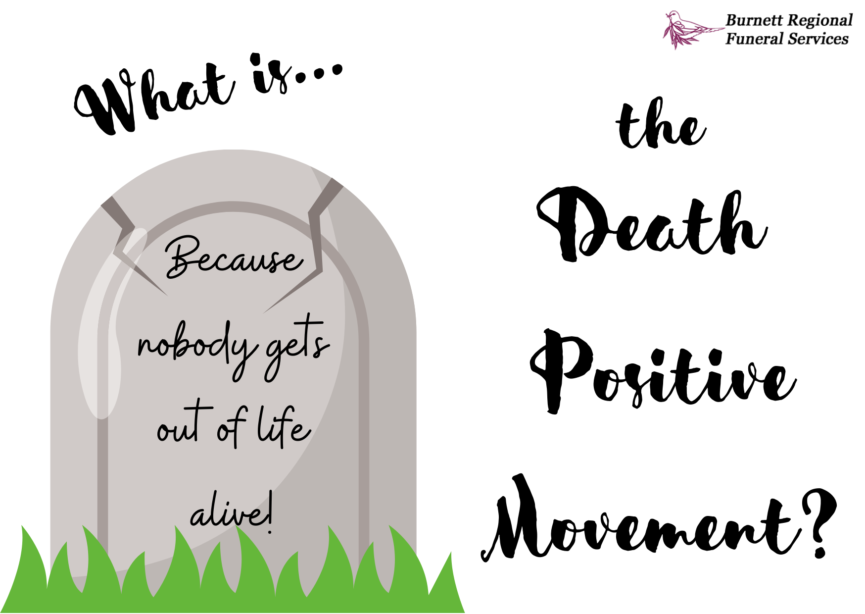Have you ever heard of the Death Positive Movement? If not, you’re definitely not alone. You might be sat here reading this and scratching your head about what on earth we’re on about, so in this blog post we’ll explain to you what the death positive movement all about and why it could be helpful.
So what’s it about?
The death positive movement is based on the belief that by not talking about dying and death openly, we are doing our society more harm than good. And let’s face it – death isn’t a topic that usually randomly pops up in day to day conversation, is it? In contrast, people don’t like to talk about death. We all die, but to talk about that and face up to the truth of the matter is deeply uncomfortable for most people, so we keep it behind closed doors, we stuff our fear of death into a deep, dark box and hide it away, never to be discussed willingly again.
What do you think about death?
When you think of the word death, what words, thoughts and feelings come up? Many people say fear, macabre, cancer, pain, grief… you get the picture. Whatever came up for you, I’m willing to bet that there were little or no comfortable associations.
The death positive movement’s purpose is to help to change this. It encourages to talk freely and openly about death, to recognise that talking about death is healthy and even normal, and to lift the taboos around discussing death.
According to UrnsOnline.com, “This might include frank discussions about the process of dying, what happens to bodies after death, death rituals and traditions, and options for burial, funerals, and body disposition.”
What’s the point of death positivity?
Talking openly, with honesty and thought about death, we can help to reduce or even eliminate the fear around death and dying. This, in turn, helps us to make truly informed and satisfying choices around the end of life.
It doesn’t just have to be about talking, either. The Death Positive movement encourages us to explore the emotions and fears attached to death through discussion, yes, but also through movement, art, innovation and deliberate learning.
Despite what society tells us, it’s not morbid to talk and think about death. We all die one day, none of us are immortal (however if you have unlocked the secret to this, then send it our way! 😉) and it is natural and human to be curious about dying and death. It’s not something we should be hiding away, but rather we should be embracing and satisfying that curiosity, so when the time comes you feel empowered in your own choices either for your own end of life of that of someone you love.
What role can funeral directors play in the Death Positive Movement?
Funeral directors and funeral homes like us have a role to play in this shifting of attitudes, too. Focussing on family centred funerals, allowing for open and honest questioning, education and discussion, offering natural or ‘green’ funeral and burial options and even allowing for active participation in the preparation of the body of a loved one and active participation in the funeral itself are all steps funeral businesses can take to help foster a cultural shift (especially in Western cultures) around attitudes to death and dying.
Useful death positive resources
There are a lot of resources out there about the Death Positive Movement that offer useful information about learning how to be more death positive and that are actively seeking to instigate a cultural shift in how we view death. A quick google search will bring up a wealth of information, however we like the following:
The Death Positive Movement Is Changing Lives
(healthline.com) – An explanation about the Death Positive Movement
RESOURCES | DeathPositiveDC.com – lots of
useful resources and information on the Death Positive movement on this page.
www.theorderofthegooddeath.com
Putting the Fun in Funeral – The New York Times (nytimes.com) – Interesting article!
Art of Dying Well – Home – The Art of Dying Well
The bottom line?
It’s okay to be curious about death, and it’s not morbid. In fact, it’s normal and we shouldn’t keep the conversation behind closed doors. If we are more open about taboos such as death, we all benefit in the end.

